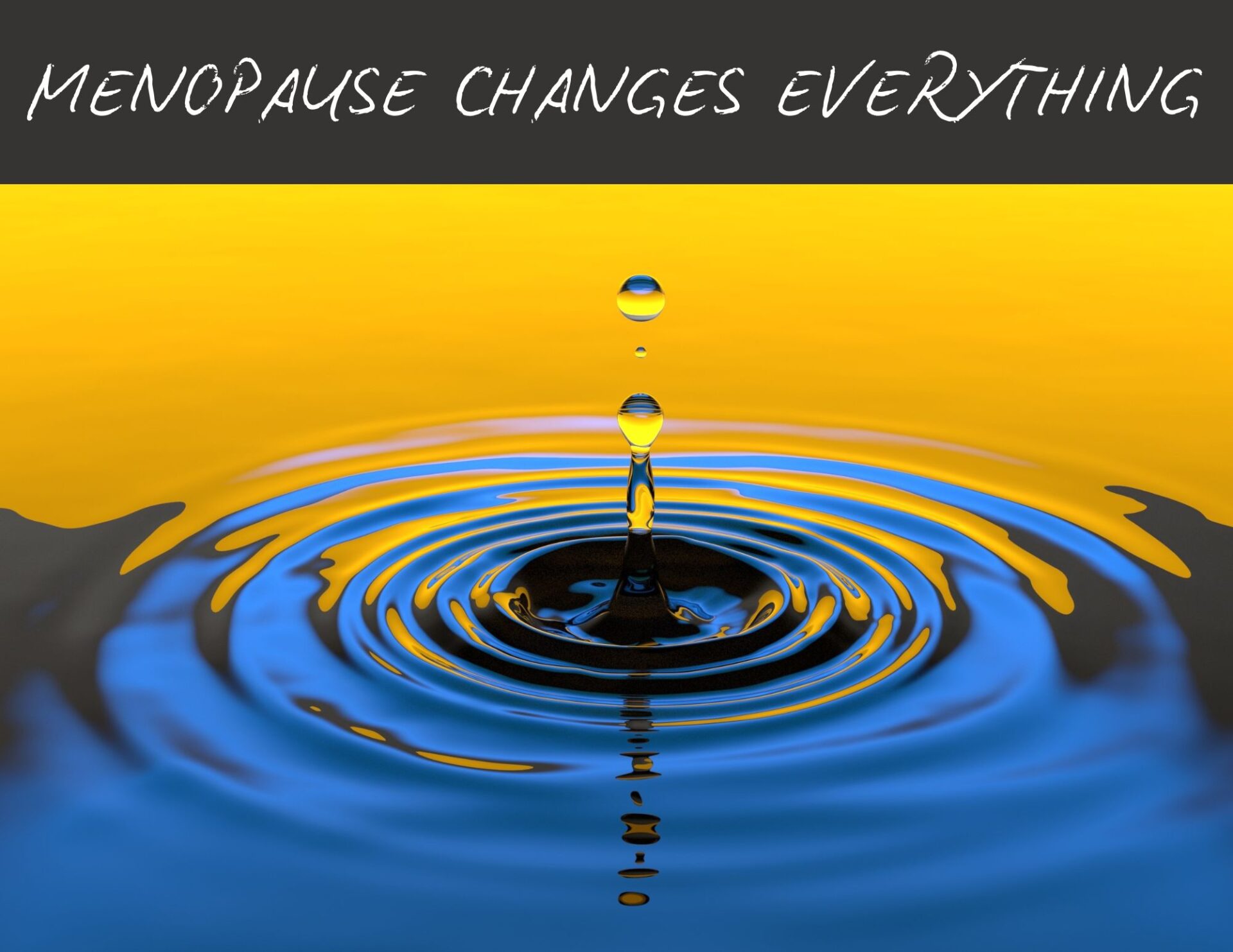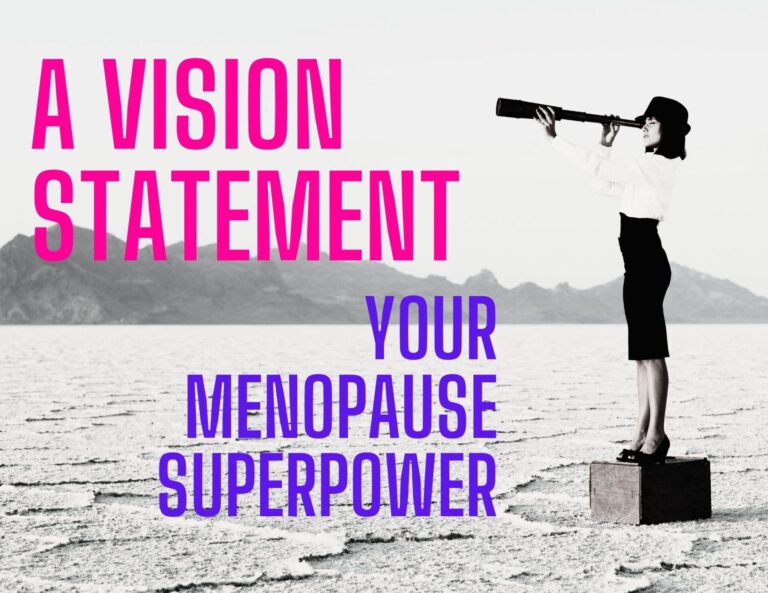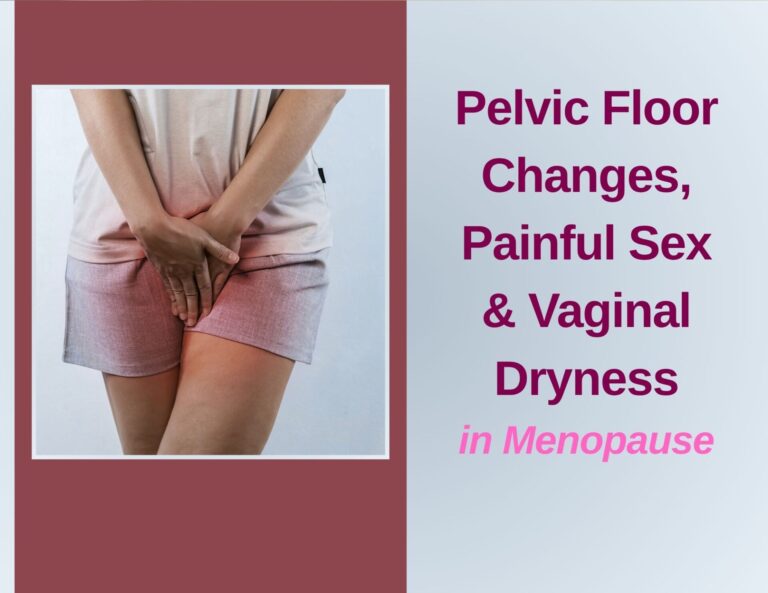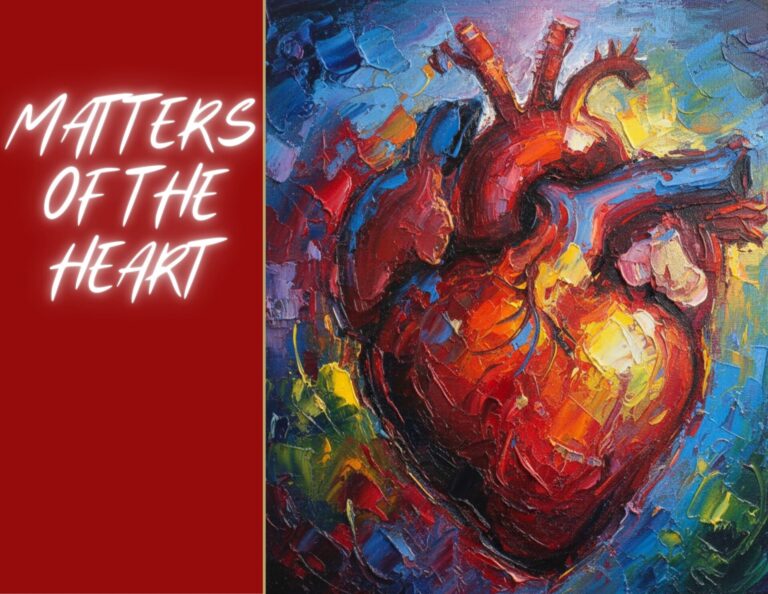This post may contain affiliate links. Read the full disclosure here.
It’s Not Just Hormones: How Menopause Affects Every System in Your Body
When most people think of menopause, they think of hot flashes and the end of periods. But the truth is, estrogen and progesterone aren’t just reproductive hormones. They play a role in nearly every system in your body — which is why the changes you’re feeling in midlife might feel so widespread and disorienting.
Here’s a breakdown of what’s really going on in your body — and some gentle, actionable tips to help you support yourself through each shift.
🩸 Reproductive System:
The Most Obvious (But Still Surprising) Changes
As your ovaries wind down, estrogen levels drop — and that brings more than the end of your cycle. Vaginal tissue can become thinner, drier, and less stretchy, making intimacy uncomfortable. You might notice a decrease in natural lubrication, which can increase the risk of irritation or infections. And yes, libido can take a hit, too — partly from hormones, partly from life stress, sleep disruption, and body image changes.
Don’t tough it out in silence. 💛 Vaginal moisturizers and lubricants can make a world of difference. For many, low-dose vaginal estrogen is also incredibly effective — talk to a provider you trust. And please know: these changes are common, but they’re not untreatable.
🧠 Nervous System:
Brain Fog, Mood Swings, and Sleep Struggles
Estrogen helps regulate brain chemicals like serotonin and dopamine — so when it declines, so can your mood, clarity, and focus. That’s why anxiety, irritability, and that infamous brain fog are all so common in perimenopause. Add to that the hypothalamus struggling to regulate body temperature (hello, night sweats), and disrupted sleep becomes a vicious cycle.
Build habits that support your nervous system. 💛 Daily movement, sunlight, protein-rich meals, and magnesium can help steady your mood and energy. Track your symptoms to find patterns, and know that sleep support — whether behavioral or medical — can be a game-changer.
❤️ Cardiovascular System:
Why Heart Health Becomes Front and Center
Estrogen helps keep blood vessels flexible and cholesterol levels in check. After menopause, your risk of high blood pressure, heart disease, and high LDL (“bad”) cholesterol increases. It’s one of the reasons women’s risk for heart disease catches up to (and surpasses) men’s after midlife.
Time to love your heart. 💛 Add more fiber, healthy fats (hello olive oil!), and walking or strength training into your routine. Even 20 minutes a day can help. And don’t skip your annual physical—cholesterol and blood pressure checks matter more than ever.
⚖️ Metabolism & Body Composition:
What’s With the Belly Fat?
It’s not your imagination — metabolism really does slow down in menopause. Estrogen plays a role in insulin sensitivity, fat storage, and muscle maintenance. As levels drop, you may notice more weight around your middle, a harder time building muscle, and increasing blood sugar concerns.
Lift something (even light things!) and eat enough protein. 💛 Prioritize strength training to preserve muscle mass. Get mindful about sugar and alcohol. And remember: it’s not about dieting — it’s about fueling your body to thrive.
🦴 Bone & Joint Health:
The Hidden (but Serious) Shift
Estrogen protects bones by slowing the natural breakdown process. When it drops, bone loss speeds up, especially in the first 5 years post-menopause. This increases the risk of osteopenia and osteoporosis — often without symptoms until there’s a fracture. Some women also notice joint stiffness or pain during this time.
Calcium + D, weight-bearing exercise, and strength training all support your bones. 💛 Don’t wait until there’s a problem — early prevention is key. Talk to your provider about bone density testing if you haven’t had one.
🍽️ Gut Health:
The Estrogen-Gut Connection
Estrogen receptors exist in the GI tract too. When hormone levels shift, so can gut motility — leading to constipation, gas, or bloating. Plus, the gut microbiome (the healthy bacteria in your belly) is sensitive to hormonal changes, diet, and stress.
Hydrate, move daily, and feed your gut with fiber and fermented foods. 💛 Probiotics may help, too, but start with the basics. Your gut loves rhythm — regular meals, daily movement, and sleep all make a difference.
💡 Bottom Line
Knowledge is power (and so is community). You don’t need to become a hormone expert to feel better in menopause — but the more you understand what’s happening in your body, the more empowered you’ll feel to advocate for your health and make choices that support you.
If you’ve ever felt like you’re the only one dealing with these changes — or you’ve left the doctor’s office with more questions than answers — I want you to know: you’re not alone, and you don’t have to figure this out by yourself.
💗 Join StrongHER Together
Ready for deeper support? StrongHER Together is my private community for women navigating perimenopause and menopause — a space for connection, expert coaching, wellness challenges, and real talk. Whether you’re seeking clarity, confidence, or just a circle of women who get it, you’ll find it here.
This post was originally written for a guest collaboration with Holly Lockhoff, Registered Dietician and owner of Time to Thrive Nutrition. I’m grateful to also share it here with my community.







